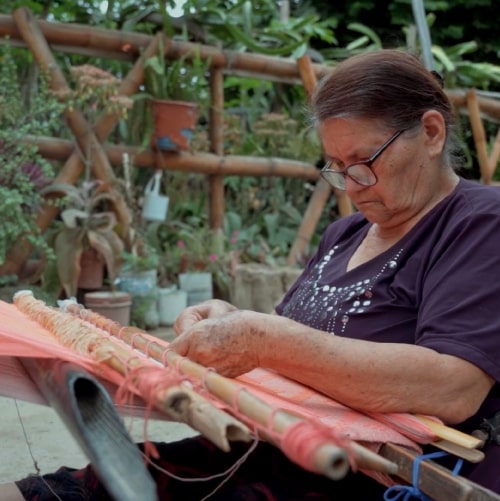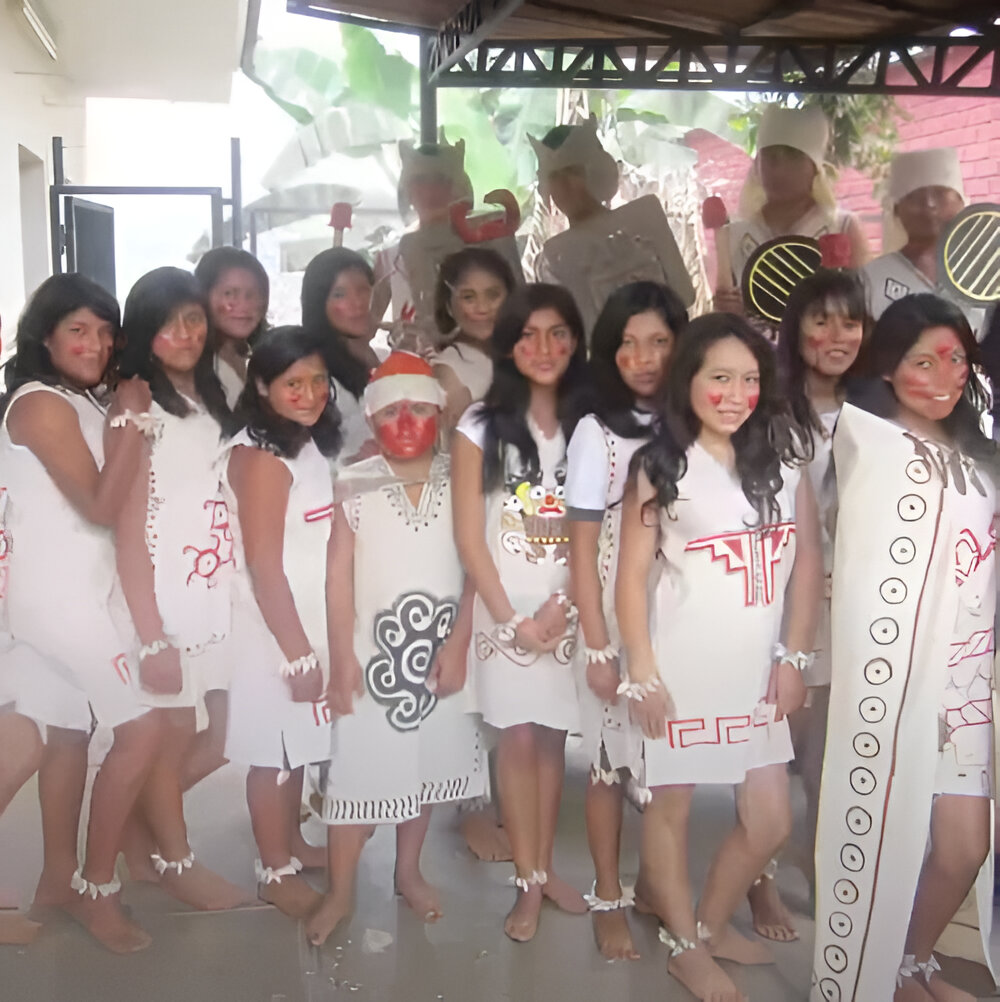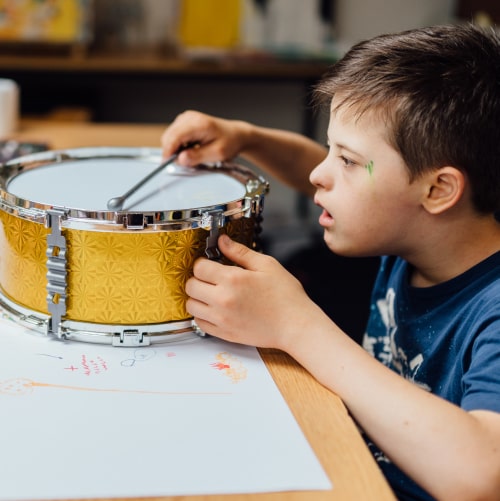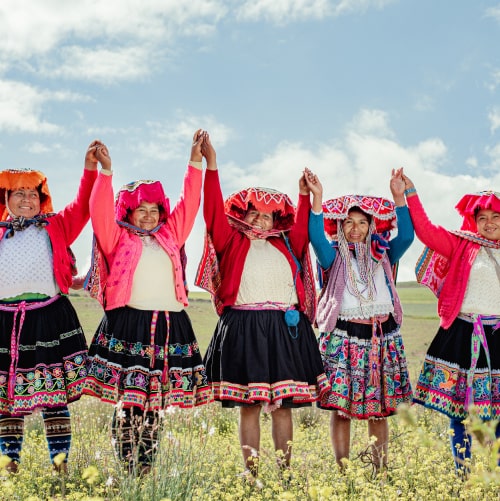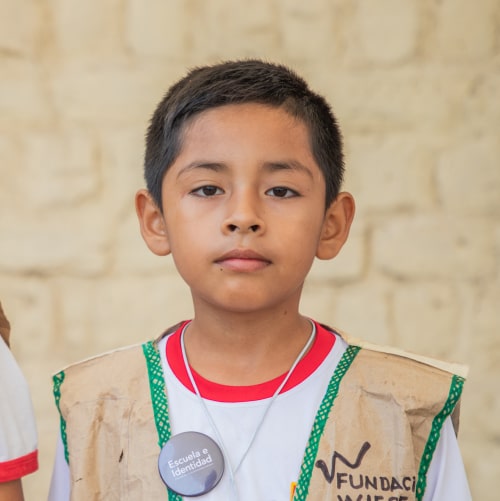The pandemic caused by COVID-19 has not only taken the lives of thousands of Peruvians, it has also increased the basic needs of the most vulnerable populations; for this reason, it is important to become aware of this reality and continue to bring help to those who need it the most.
Wiese Foundation, in order to bring assistance to the communities hardest hit by emergency situations and disasters, has the Humanitarian Aid Program in Peru, through which it allocates a fixed annual amount, in order to bring the help that they need so much.
Scope of Wiese Foundation Humanitarian Aid Program in Peru in 2020 and 2021
Since the pandemic began in Peru, in the first quarter of 2020, Wiese Foundation decided to allocate the Humanitarian Aid Program fund to provide support to the communities most affected by COVID-19. Thus, it quintupled the economic contribution that is generally allocated for this purpose, in order to:
- Contribute to saving lives.
- Providing support to the safety of the health personnel.
- Providing economic support to the families who have not received support from the State.
Thanks to this fund, we were able to conduct actions such as:
We Are Together Campaign
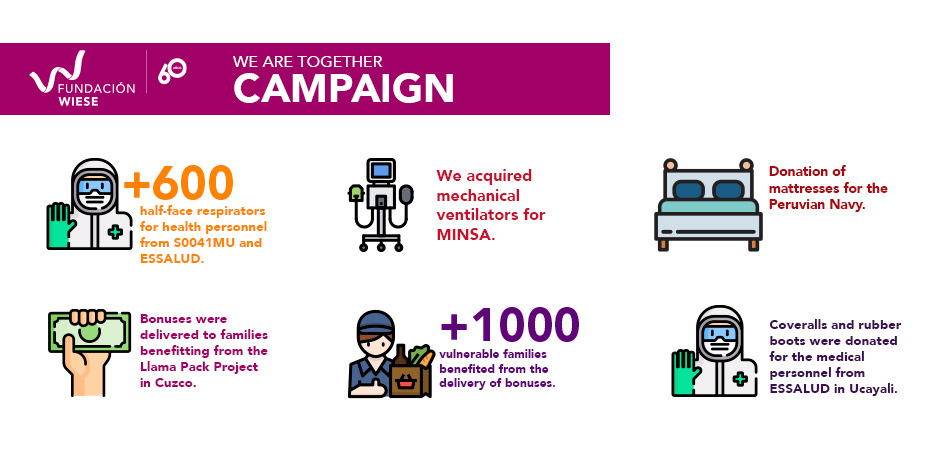
In alliance with ADRA Peru (Adventist Development and Relief Agency) and Panamericana TV, we launched the “We Are Together” campaign, thanks to which we succeeded in collecting one and a half million soles that were allocated to:
- Contributing to the purchase of mechanical ventilators for MINSA.
- Donating medical instruments for the Villa Panamericana Olympic village.
- Donating 600 half-face respirators for healthcare personnel from SAMU and ESSALUD.
- Donating coveralls and rubber boots for the medical personnel from ESSALUD in Ucayali.
- Donating mattresses for the Peruvian Navy.
- Delivery of S/100 bonuses for one thousand vulnerable families.
- Delivery of S/100 bonuses for 500 families benefitting from the Llama Pack project.
- Delivery of groceries baskets to “Casitas del Arco Iris” in Cusco.
Donation for the implementation of an oxygen plant
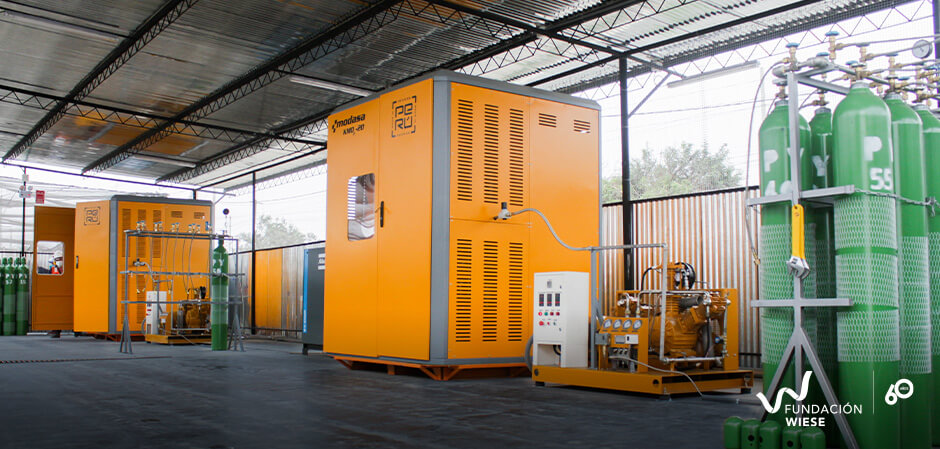
Wiese Foundation, together with the civil society of Cañete, journalists and institutions, made possible the acquisition of the second generator for the medical oxygen plant of that city.
The donation made by the foundation made it possible to cover approximately 60% of the value of the second generator of this plant and encouraged others to join the cause and complete the money necessary for its acquisition. Currently, said plant makes it possible to supply 96 oxygen cylinders per day, as each one of the generators produces 20 m3 per hour. The donation will make it possible not only to have oxygen in this area of Peru (and its environs) in the event of a third wave, but also to supply medical oxygen to the closest hospital, post-pandemic.
Donation of oxygen calibrators and financing for the production of Wayrachis
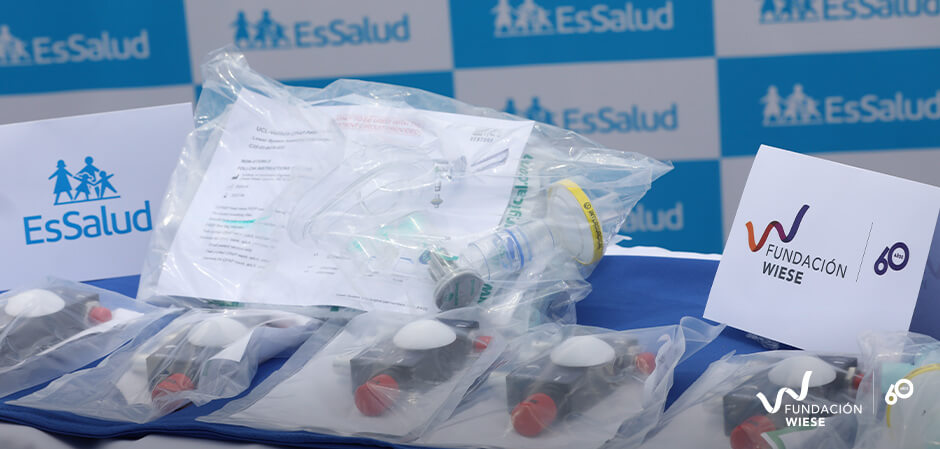
Moreover, the Foundation donated 100 Wayrachis devices, thanks to which it is possible to supply a high flow of oxygen to patients who need it and, thus, to prevent the use of mechanical ventilators. Together with these 100 equipments, we also donated 13 oxygen calibrators in order to facilitate and control the use of Wayrachis donated to ESSALUD.
The Wayrachis are high-flow oxygen equipments whose design plans were developed by the Mercedes Benz firms and UCL-Ventura University from the United Kingdom; the rights to said plans were waived last year in order that they could be replicated throughout the world and to supply the hospitals with a technology that could be helpful to care for and save the lives of patients who need oxygen. As the rights to the designs had been waived, three Peruvian engineers developed them in Peru, giving them the name of Wayrachis.
At the beginning of the year, the engineers, with their own funds, the support from nonprofit organizations and collaborations, succeeded in creating 350 Wayrachi oxygen regulators that were distributed to hospitals from MINSA, ESSALUD and the police; but there was still a way to go. In this context, Wiese Foundation committed to donating 100 devices more, throughout the year, thus effecting the second and third delivery of Wayrachis in last March.
Donation of food kits to 500 families
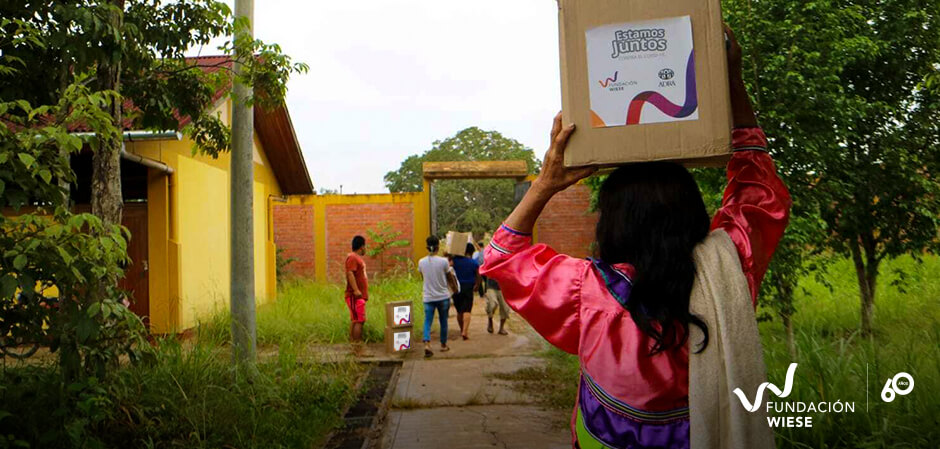
At Wiese Foundation, we have been working for more than three years with 12 educational institutions in Lurín and Pachacámac. Hence, after identifying the most vulnerable families, we granted food kits that benefitted 500 families.
Regarding the kits that were given, they contained food supplies for 10 days. Each supply, moreover, was selected considering the provisions from the World Health Organization.
For the distribution of the baskets, we had the support from ADRA Peru, aside from the Peruvian Army, the Peruvian Police Force and the Municipal Security Force of Pachacámac. We are also were accompanied by the 12 educational institutions that we have been helping these last years, who allowed us to use their premises for the distribution of groceries; in addition to that, they also helped us by calling upon and mobilizing the beneficiary families.
In the midst of this global sanitary crisis, Wiese Foundation, within the framework of its Humanitarian Aid program, continues to aid the populations most affected by the economic impact of the pandemic. For more information about this program, we invite you to follow this link.



